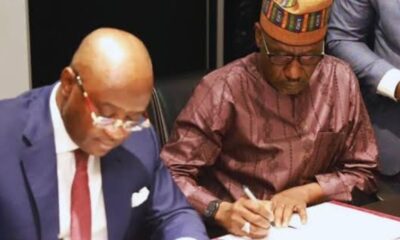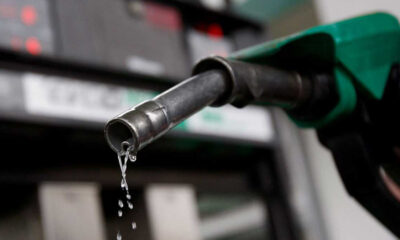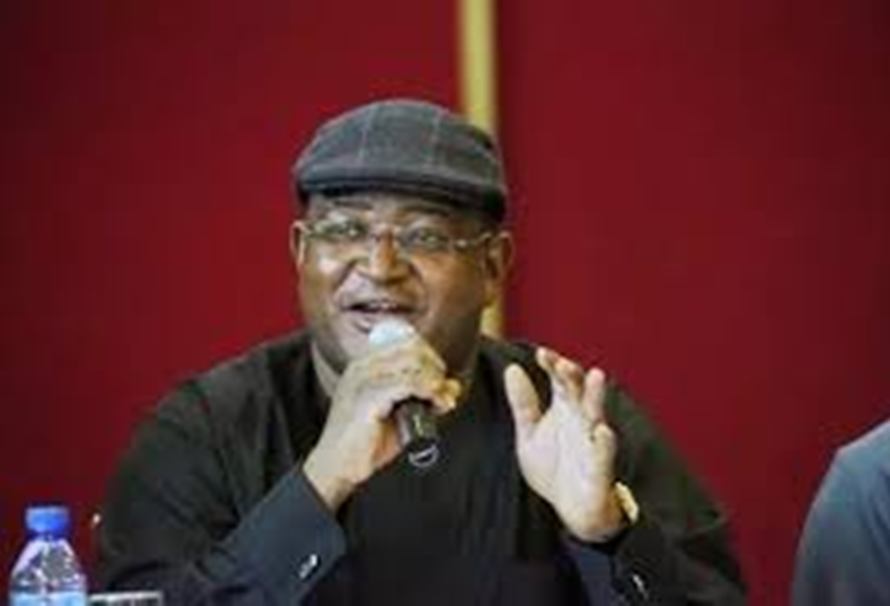Gists
How Depot Owners, Insiders At NNPC Are Enriching Selves From Lingering Fuel Scarcity

…why petrol will continue to sell above official price
Information filtering in have it
Instead of easing the persistent scarcity of Premium Motor Spirit (PMS) otherwise known as petrol, depot owners are allegedly a major obstacle to its availability in the country. They obstruct the smooth supply of the product by selling a litre of the product for over N120 as against the ex-depot price of N76.50 per litre.
It was learnt that a litre of petrol has been selling well above the official ex-depot price in the last two weeks, which may have given reasons for filling stations to also sell at above the regulated price of N86.50 per litre.
But looking beyond the energy crisis at home, the Minister of State for Petroleum Resources and Group Managing Director of the Nigerian National Petroleum Corporation, Ibe Kachikwu, has assured that the Organisation of the Petroleum Exporting Countries (OPEC) would continue to work to achieve consensus for output freeze among oil-producers.
A source told The Guardian that depots in Apapa and Ibafon, Lagos, are now selling to customers who are ready to pay above the official price, leaving the others to wait for days without getting the product.
Indeed, indications emerged yesterday that some depot operators and unscrupulous persons at the Nigerian National Petroleum Corporation (NNPC) depots were inordinately enriching themselves from the fuel scarcity.
Sources alleged that some officials that are privileged to draft and honour the fuel loading tickets at various petroleum depots doing throughput for the NNPC, its directly-owned depots and other independent operators, are involved in the sharp practices.
This situation, it was learnt has forced the filling station dealers to go through intense lobbying to service their retail outlets and thereafter sell at the prices they consider profitable for their business and above the pump price.
Consequently, the scarcity of petrol persists across the country as most retail outlets are not dispensing, while others are characterised by long queues of vehicles, motorcycles, generating sets and jerry cans.
Stations monitored by The Guardian in Lagos include Forte Oil, Oba Akran; Fowobi filling station at Ota; Conoil at Ikeja; Eterna filling station, Iju Ishaga; Mobil at Palm Avenue, Forte Oil at Onipanu; Mobil at Airport Road; and Total, Ikeja.
Most of the stations were selling between N120 and N160 per litre. An attendant at one of the stations said the manager directed her to sell at 120 per litre. Motorists have continued to complain bitterly that the stations were not selling at the regular pump price and were collecting as much as N200 on vehicles, motorcycles and N500 on 25/50 litres of jerry cans. Long queues of vehicles in most cases extend to major roads thereby obstructing the free flow of traffic in such axis.
According to the Petroleum Products Pricing Regulatory Agency (PPPRA) pricing template, ex-depot price as at yesterday remained N76.50. A source said that there was no way depot owners would sell petrol at the official ex-depot price of N76.50 due to the high cost of sourcing foreign exchange to import the product.
A marketer claimed that he was sourcing the product through third parties and could not afford to sell at the regulated price of N86.50 per litre. The source alleged that ongoing profiteering at the depot caused the slow compliance with pump price reversal by marketers. The marketer urged the Federal
Government to wade into the situation and sanction the dishonest depot owners, who are taking advantage of the current situation to cheat consumers.
“We marketers within the South-West of Lagos, Ibadan, Ore, Ilorin and Ekiti found it extremely difficult to load at Apapa depot due to the bottleneck at the depot. It causes us a minimum of one week to load product at Apapa private depots which grossly affects our business and investment,” he said.
The Executive Secretary, Depot and Petroleum Products Marketers Association (DAPPMA), Olufemi Adewole said: “We don’t know who they are, so please help us expose them. Our members sell the product at government-regulated price. If somebody buys from a depot and at higher price, the regulatory agencies and the pressmen should help us checkmate them.”
He added that: “The queues are still long because there is no foreign exchange to bring in cargoes. For now, there is inadequate forex. If we get the forex, we will be able to bring in the cargoes and supply all our customers.
“I am yet to confirm those who have received forex for their import, some of our members are supposed to import in April, May and June, but I don’t have the details of those who have received the forex intervention now, I believe that the Central Bank of Nigeria (CBN) and NNPC are working on it.
“The much that we have in circulation right now is from our members and NNPC imports, all hands are on deck to ensure that the fuel queues disappear
in a short time. It is not something that will go in one day or two days, the situation has lingered for about two months now, so it could not go in one day.
What we are working towards is to ensure that it disappears as fast as possible.”
Addressing reporters after the protracted meeting of OPEC and non-OPEC oil-producers held under the aegis of Oil-Producing Countries Ministerial Meeting in Doha, Qatar, Kachikwu stressed that OPEC must work at achieving a workable consensus on the issue by bringing everybody to the negotiating table.
“We are just going to work at it. It is a supply and demand issue and we need to consult and bring everybody into the circle and thank God that a committee is now in place to try and work towards getting everybody on board,” he said.
According to the minister, once every member-country of OPEC is brought on board, it would become easier to convince other major oil producers to sign up to the freeze policy which is designed to remedy the lingering decline in the price of crude oil in the international market.
The meeting had officials of 18 countries in attendance namely: Qatar, Kuwait, Oman, Saudi Arabia, Nigeria, Russia, Mexico, Ecuador, Trinidad and Tobago, Iraq, Mexico, Azerbaijan, Kazakhstan, Angola, Bahrain, Indonesia, Venezuela and United Arab Emirates.
It is expected that the consensus issue being canvassed by Kachikwu will be pursued vigorously in the next OPEC Ministerial Meeting slated for June 2016 in Vienna, Austria
Guardian











